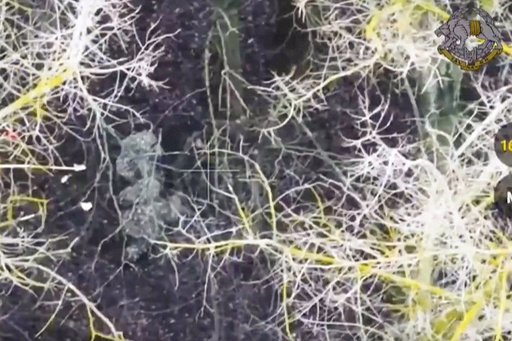
KYIV, Ukraine — The capture of two North Korean prisoners of war by Ukrainian forces last month marked a significant development, revealing North Korea’s tangible involvement in the conflict against Ukraine. This incident has also highlighted the background and mindset of the young North Korean soldiers deployed to assist Russia far away from their homeland.
These North Korean troops, characterized by their high levels of discipline and a readiness to face the ultimate sacrifice, are generally inexperienced and very young. Their capture during separate operations on January 9 drew interest and sympathy from Ukrainian soldiers. This incident corroborated earlier assertions from Ukraine, South Korea, and the U.S. about the presence of thousands of North Korean soldiers fighting alongside Russian forces in the Kursk border region, something that Moscow had never publicly acknowledged.
The Ukrainian special forces had long sought a North Korean prisoner. Previous efforts often resulted in failure, as captured North Koreans would prefer to die than be taken. Only one soldier had been captured previously, but he did not survive his injuries. When the special forces learned about three North Korean soldiers stranded in a perilous area known as the “gray zone,” they seized the opportunity. These soldiers were recognized as North Koreans due to their operations within this specific sector of Kursk, which raised suspicions of abandonment.
“We think they were likely left behind,” shared a Ukrainian soldier involved in the mission, who requested anonymity to keep his identity confidential. The soldiers moved cautiously through a desolate winter forest toward the drone-detected location of the lost North Koreans.
“They’re incredibly resilient,” the soldier mentioned. “We’ve observed them carrying substantial loads. One was quite small, yet running with a heavy backpack and a machine gun.” As the Ukrainian group neared the soldiers, they were met with enemy fire, resulting in the death of two North Koreans and injury to the third, who was left with only a grenade.
Disoriented, the surviving soldier offered no resistance as the Ukrainians began to provide medical assistance. Their commander discreetly took the grenade away. When the Ukrainian soldier attempted communication, he began in Russian, leading to a minimal response. Noticing the soldier’s muttering in English, the Ukrainian switched to his rudimentary English, asking him about his age and length of service. The young soldier revealed he was 21 and had enlisted at 16 for an eight-year duration in military service.
Despite his deep experience and being a father, the Ukrainian soldier felt an unexpected surge of empathy towards the captive. “I looked at him, and honestly, I felt sorry for him,” he reflected. Their team offered the soldier water and a cigarette, prompting him to refer to the Ukrainians as “brothers.”
As they attempted to carry him to areas controlled by Ukraine, their movements were compromised when a Russian reconnaissance drone spotted them, leading to a sudden onslaught of gunfire. “They must have known we captured him and were determined to eliminate him,” noted the soldier. Eventually, they reached an evacuation vehicle, and it was only at that point the North Korean realized he was in Ukrainian hands, prompting him to search desperately for his grenade again.
“When I handed him over to the medics, he looked alarmed when I wasn’t accompanying him,” the soldier recounted. “I told him, ‘Everything will be fine, you will live.’” This concluded an operation that lasted eight arduous hours.
“Though I feel compassion for him, they did come to fight in our land,” he acknowledged. “Still, I hope to meet him again someday.”
Meanwhile, another North Korean soldier was captured by chance as Ukrainian troops defended against a sudden assault. The intense battle began around dawn, showcasing the relentless nature of the North Korean attacks, which were substantial but considered expendable by their command, as shared by 27-year-old paratrooper Maksym Didorchuk.
“It’s a numbers game,” he explained, noting that the North Korean tactics relied heavily on mass assaults, where individual soldiers were not of high value. At noon, a drone observed a solitary soldier erratically moving toward the Ukrainian rear, prompting an order to intercept him to provide any needed medical assistance.
As they approached the soldier, the Ukrainian paratroopers attempted to communicate in multiple languages without success until they recognized his North Korean identity. His face was obscured, but he bore visible injuries, including a wounded arm and a bandaged jaw. Initially confused, he was found carrying both a grenade and a knife, which he later dropped after being persuaded by the paratroopers.
Following careful protocol to avoid detection from Russian drones, the team waited in a trench for transport. The North Korean soldier requested cigarettes, which the paratroopers provided while remaining vigilant. When the extraction vehicle arrived, the soldier panicked and tried to harm himself against a structure in an apparent act of desperation.
“He seemed to want to self-destruct,” Didorchuk noted, as they secured him for transport to the authorities. Reports from Ukraine’s SBU security service indicated one of the captured soldiers had no documents while the other possessed Russian military identification, suggesting confusion about their mission. The latter soldier claimed he was told he was being sent to Russia for training, only to find himself fighting in Ukraine after a mere week of preparation with Russian forces.

